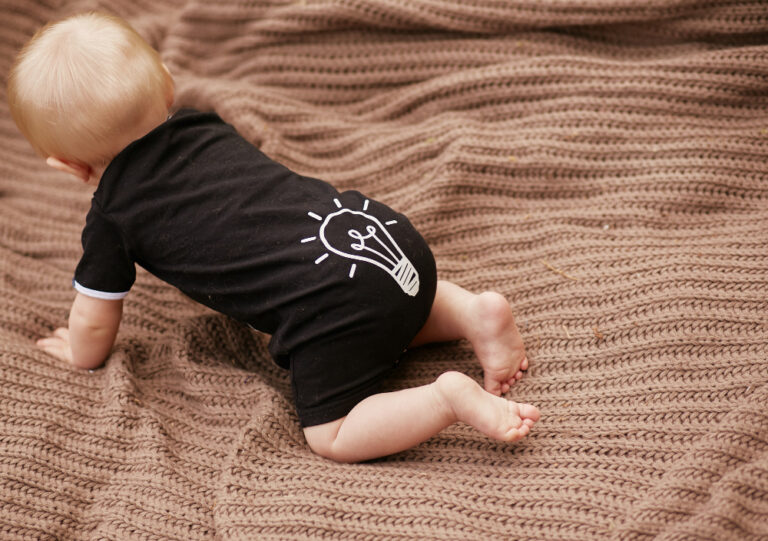Diapering: Cloth vs. Disposable – A Comprehensive Guide to Choosing the Best Diaper for Your Baby
As a parent, one of the most important decisions you will make in the early stages of your baby’s life is the type of diaper to use: cloth or disposable. This choice impacts not only your baby’s comfort and health but also your household budget, convenience, and even the environment. To help you navigate this decision, we’ll break down the pros and cons of both cloth and disposable diapers, considering factors like cost, sustainability, ease of use, and more. By the end of this article, you’ll have a clear understanding of which diapering option might be best for your family.
What Are Cloth Diapers?
Cloth diapers are reusable, washable diapers made from natural fibers, synthetic materials, or a combination of both. Modern cloth diapers are far more sophisticated than the old-fashioned versions. They now come with inserts, liners, and adjustable fastenings, making them user-friendly and highly customizable. Popular materials include cotton, bamboo, hemp, and microfiber.
Types of Cloth Diapers
- Prefolds: These are rectangular pieces of cloth that you fold into the desired shape and fasten around your baby using a diaper cover.
- Fitted Diapers: These resemble disposable diapers but are made of cloth and require a separate waterproof cover.
- Pocket Diapers: These have a pocket where you can insert absorbent material.
- All-in-Ones (AIO): These combine the absorbent material and the waterproof outer layer into one convenient diaper.
Benefits of Cloth Diapers
- Cost-Effective: Though the initial investment in cloth diapers can be higher, they tend to be more affordable over time because they are reusable. You can even use them for multiple children, further lowering the cost per use.
- Eco-Friendly: Cloth diapers significantly reduce waste. Since they are reusable, fewer diapers end up in landfills, which is better for the environment.
- Gentle on Skin: Many parents choose cloth diapers because they are made from natural materials, making them gentler on sensitive baby skin. This can reduce the risk of diaper rashes and allergic reactions.
- Customizable: Cloth diapers offer more flexibility when it comes to fit and absorbency. You can adjust the absorbent layers according to your baby’s needs, especially during naps or overnight.
Downsides of Cloth Diapers
- Laundry: One of the biggest drawbacks of cloth diapering is the need for frequent washing. On average, you’ll need to wash diapers every two to three days, which can be time-consuming.
- Upfront Costs: While cloth diapers save money in the long run, the initial investment can be steep, especially if you opt for premium brands.
- Bulkier: Cloth diapers tend to be bulkier than disposable ones, which can sometimes make clothing a snug fit.
- Not as Convenient for Travel: If you’re on the go, cloth diapers may be less convenient, as you’ll need to carry soiled diapers until you return home to wash them.
What Are Disposable Diapers?
Disposable diapers are single-use diapers made from synthetic materials like plastics, along with absorbent chemicals that wick moisture away from the skin. They are designed for convenience and are widely available in various sizes and absorbency levels.
Types of Disposable Diapers
- Standard Disposable Diapers: These are the most common type and are available at most retail stores.
- Biodegradable Disposable Diapers: Made with more environmentally friendly materials, these diapers break down faster than traditional disposable diapers, but they still produce waste.
Benefits of Disposable Diapers
- Convenient: The biggest advantage of disposable diapers is convenience. They are easy to use and dispose of, making them ideal for busy parents or those on the go.
- Highly Absorbent: Disposable diapers are designed with superabsorbent polymers that lock in moisture, keeping your baby dry for longer periods.
- Less Laundry: Since disposable diapers are thrown away after use, you won’t have to worry about doing extra laundry or dealing with dirty diapers.
- Travel-Friendly: Disposable diapers are lightweight and easy to pack, making them a great option for travel or outings.
Downsides of Disposable Diapers
- Environmental Impact: Disposable diapers contribute significantly to landfill waste. They can take hundreds of years to decompose, posing a serious environmental concern.
- Cost: Over time, the cost of disposable diapers adds up. Since you’re constantly buying new diapers, the long-term cost is generally higher than that of cloth diapers.
- Chemicals: Some parents worry about the chemicals used in disposable diapers, such as chlorine and fragrances, which may irritate sensitive skin.
- Less Customization: Disposable diapers come in standard sizes and absorbency levels, which means you may not be able to customize the fit or absorbency for your baby’s specific needs.
Cloth Diapers vs. Disposable Diapers: A Cost Comparison
The cost of diapers is a major factor for most families. Cloth diapers involve a higher initial investment, with the price of a single cloth diaper ranging from $5 to $25. You’ll typically need 20 to 30 diapers in your stash, costing around $200 to $800 upfront. However, since cloth diapers are reusable, the cost per use decreases over time. On the other hand, disposable diapers cost around $0.20 to $0.50 per diaper, depending on the brand. Over the course of your baby’s diapering years, you could spend anywhere from $1,500 to $2,500 on disposable diapers.
If you factor in the cost of washing cloth diapers, including water, detergent, and electricity, cloth diapers may still be more economical over the long term, particularly if you use them for more than one child.
Cloth Diapers vs. Disposable Diapers: Environmental Impact
The environmental impact is a significant consideration for many parents. Disposable diapers contribute to billions of tons of waste annually, with each diaper taking up to 500 years to decompose. In contrast, cloth diapers have a smaller environmental footprint since they are reusable. However, cloth diapers also have an environmental cost due to the water, energy, and detergents needed for washing.
If sustainability is your top concern, you might consider hybrid solutions, like using cloth diapers at home and disposable diapers when traveling. You can also opt for biodegradable disposable diapers, which break down faster and are less harmful to the environment.
Cloth Diapers vs. Disposable Diapers: Convenience
When it comes to convenience, disposable diapers have the upper hand. They are quick and easy to use, and you don’t have to worry about washing them. However, modern cloth diapers have come a long way in terms of ease of use, with many parents finding them just as simple to use as disposables after they get the hang of it.
For parents who want the best of both worlds, some companies offer hybrid diapers that combine reusable cloth shells with disposable inserts, providing convenience without the environmental guilt.
Which Diaper is Best for Your Family?
Ultimately, the choice between cloth and disposable diapers depends on your family’s unique needs and lifestyle. If sustainability and cost are your primary concerns, cloth diapers may be the better choice. However, if you prioritize convenience and minimal laundry, disposable diapers could be the way to go.
Many parents find a balance by using both types of diapers—cloth diapers at home and disposables when they’re out and about. Regardless of your choice, both options have their advantages and disadvantages, so it’s essential to choose what works best for your baby and your family.
This article provides a comprehensive comparison of cloth vs. disposable diapers, highlighting the benefits, drawbacks, and cost factors for each type to help parents make informed diapering decisions.
------------From our Sponsors------------







